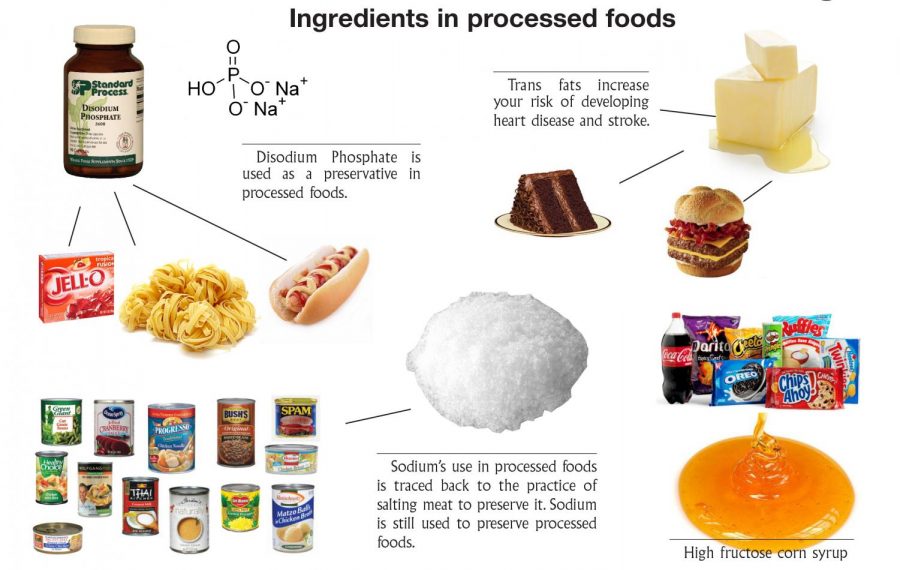U.S. obsessed with processed food
Convenience overshadows nutrients in western diet
Nov 1, 2017
Over the last 100 years the rise in processed food has gripped America in a choke-hold of manufactured nourishment that has led to convenient but unhealthy eating choices.
Saturating grocery stores and household food necessities with added sugars, flavors and preservatives, these products of clinically assembled ingredients include canned goods, frozen vegetables, crackers, granola bars and deli meat.
“Processed foods start from the point of where you yank it off the ground,” Contra Costa College culinary arts department Chairperson Nader Sharkes said. “This is called processing. Then washing the item is another step. Imagine if you wash it, transport, refrigerate and then cook it and then put it in a can or freeze it. It loses all its nutrients. It loses all its texture. It loses all its flavor.”
The progression of manufactured processed foods hit its stride in the 1950s and 60s as Americans strived for accessibility with inventions like the microwave and pre-packaged frozen meals.
According to a 2015 American Journal of Clinical Nutrition report, 61 percent of the food Americans buy is highly processed.
“It’s because of the convenience. Everyone is busy working and you’re trying to just get filled fast without making any effort because you are working 10 or 14 hours,” Sharkes said. “Processed food is always cheaper. Organic food is still pricey. We are trying to teach the students and everyone to eat healthy, but they can’t afford it. ”
The readiness of fast food restaurants has also created popular and cheap go-to options for millions of Americans.
In a 2012 study at DoSomething.org, at least one in four people eat some type of fast food every day.
“Toxins from these chemicals that make up processed foods trick the taste buds into thinking things are sweet,” CCC kinesiology professor Beth Goehring said. “These toxins build up in the body, and long-term effects can range from high blood pressure to diabetes.”
Food products that are labeled fat free or products that may be the new “diet craze” can also pose a threat, Goehring said.
“Our bodies don’t know how to process these types of synthetic sweeteners,” she said. “People need to back away from these processed foods to protect their health.”
CCC nursing major Jazmine Carbajal said she normally cooks all of her food from scratch and rarely purchases fast food.
“Students are busy and don’t have time to prepare lunch,” she said. “Sometimes I have to watch what I eat. For lunch I normally go with a sandwich, I don’t eat chips.”
Sharkes said obesity is caused by processed foods and it’s just one of the many reasons Americans need to create a balance.


